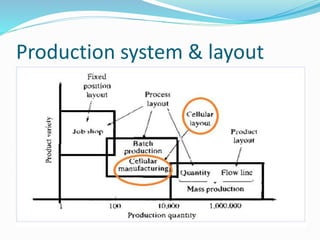
In the United States, chemical manufacturing is a major industry that transforms organic and inorganic raw materials into useful products. It supplies products and materials for industries, ranging from plastics through explosives. Chemical industry also faces many problems. Numerous workers are at high risk for health and safety.
Chemical manufacturing can be divided into two major segments: specialty chemicals and commodity chemicals. These two groups share the same infrastructure, utilities, production processes, and other resources. However, the types of products are different. Specialty chemicals can be used for specific purposes. Specialty chemicals manufacturers make some of the most expensive chemicals. Many of these chemicals are protected under patents.
While some chemicals may be manufactured in one location only, many petrochemicals are produced in large-scale facilities. Rotterdam in The Netherlands and Texas are three examples of large-scale chemical facilities. Large-scale chemical plants often share utilities, infrastructures, and create economies of scale.
The United States is the second-largest chemical manufacturer in the world behind China. Statista says that the industry generates more than $4 trillion annually. About half of industry revenue is generated by the top 50 US companies.

There are approximately 20 million people employed in the chemical manufacturing industry worldwide. While most of these workers are in large-scale facilities, a small number are part-time or contract employees. The sector's employment is being affected by technological advances and increased competition.
The U.S. economic overall drives the demand of chemicals. The chemical industry is highly regulated. The manufacturing process is regulated by the government. Companies are required to practice environmentally sustainable operations. Additionally, some chemical manufacturing raw materials are dangerous to extract.
The industry faces challenging procurement processes. Additionally, raw material costs are very high. Some companies move their operations to lower-cost locations in order to keep costs down. Lastly, some companies are merging or moving their production activities to developing countries. This will lead to the loss of jobs.
In 2008, 80 percent of jobs were in the basic chemical manufacturing section. This segment includes manufacturers of pesticides and dyes as well as other materials. Pfizer and Dow are two of the largest manufacturers in this area. DuPont is also a major player, as well as Formosa Plastics & Sinopec Group.
Large-scale production facilities usually have clean water. Workers are required to wear safety goggles and work in a temperature-controlled environment. However, some workers can be replaced with sophisticated machines controlled by computers. These workers often work night shifts.

It is possible that chemical manufacturing plants will need to adapt to new production methods. New processes can improve accuracy, and reduce labor costs. Nanotechnology will improve chemical manufacturing efficiency. Companies will be able to conserve energy and reduce their waste through nanotechnology.
Some of the other factors affecting the employment of the chemical manufacturing industry are increased foreign competition, technological advancements, and environmental health and safety concerns. Generally, the industry's employment is projected to decrease 13 percent over the next four years.
FAQ
Why automate your factory?
Modern warehouses have become more dependent on automation. With the rise of ecommerce, there is a greater demand for faster delivery times as well as more efficient processes.
Warehouses must be able to quickly adapt to changing demands. Technology investment is necessary to enable warehouses to respond quickly to changing demands. Automating warehouses is a great way to save money. Here are some of the reasons automation is worth your investment:
-
Increases throughput/productivity
-
Reduces errors
-
Improves accuracy
-
Safety enhancements
-
Eliminates bottlenecks
-
Allows companies scale more easily
-
It makes workers more efficient
-
Gives you visibility into all that is happening in your warehouse
-
Enhances customer experience
-
Improves employee satisfaction
-
Reducing downtime and increasing uptime
-
This ensures that quality products are delivered promptly
-
Eliminates human error
-
This helps to ensure compliance with regulations
What is the role of a logistics manager
Logistics managers make sure all goods are delivered on schedule and without damage. This is done through his/her expertise and knowledge about the company's product range. He/she should make sure that enough stock is on hand to meet the demands.
What are the main products of logistics?
Logistics refers to the movement of goods from one place to another.
They encompass all aspects transport, including packaging and loading, transporting, storage, unloading.
Logisticians ensure that the right product reaches the right place at the right time and under safe conditions. They help companies manage their supply chain efficiency by providing information on demand forecasts, stock levels, production schedules, and availability of raw materials.
They coordinate with vendors and suppliers, keep track of shipments, monitor quality standards and perform inventory and order replenishment.
What type of jobs is there in logistics
Logistics can offer many different jobs. These are some of the jobs available in logistics:
-
Warehouse workers - They load and unload trucks and pallets.
-
Transportation drivers: They drive trucks and trailers and deliver goods and make pick-ups.
-
Freight handlers - They sort and pack freight in warehouses.
-
Inventory managers - These are responsible for overseeing the stock of goods in warehouses.
-
Sales representatives - They sell products.
-
Logistics coordinators – They plan and coordinate logistics operations.
-
Purchasing agents - They buy goods and services that are necessary for company operations.
-
Customer service representatives - They answer calls and emails from customers.
-
Ship clerks - They issue bills and process shipping orders.
-
Order fillers - These people fill orders based on what has been ordered.
-
Quality control inspectors: They inspect outgoing and incoming products for any defects.
-
Others - There are many types of jobs in logistics such as transport supervisors and cargo specialists.
What do we need to know about Manufacturing Processes in order to learn more about Logistics?
No. It doesn't matter if you don't know anything about manufacturing before you learn about logistics. But, being familiar with manufacturing processes will give you a better understanding about how logistics works.
What skills is required for a production planner?
To become a successful production planner, you need to be organized, flexible, and able to multitask. It is also important to be able communicate with colleagues and clients.
Why is logistics important in manufacturing?
Logistics are an integral part any business. They enable you to achieve outstanding results by helping manage product flow from raw materials through to finished goods.
Logistics are also important in reducing costs and improving efficiency.
Statistics
- According to a Statista study, U.S. businesses spent $1.63 trillion on logistics in 2019, moving goods from origin to end user through various supply chain network segments. (netsuite.com)
- [54][55] These are the top 50 countries by the total value of manufacturing output in US dollars for its noted year according to World Bank.[56] (en.wikipedia.org)
- Many factories witnessed a 30% increase in output due to the shift to electric motors. (en.wikipedia.org)
- You can multiply the result by 100 to get the total percent of monthly overhead. (investopedia.com)
- According to the United Nations Industrial Development Organization (UNIDO), China is the top manufacturer worldwide by 2019 output, producing 28.7% of the total global manufacturing output, followed by the United States, Japan, Germany, and India.[52][53] (en.wikipedia.org)
External Links
How To
How to use 5S to increase Productivity in Manufacturing
5S stands in for "Sort", the "Set In Order", "Standardize", or "Separate". The 5S methodology was developed at Toyota Motor Corporation in 1954. This methodology helps companies improve their work environment to increase efficiency.
This approach aims to standardize production procedures, making them predictable, repeatable, and easily measurable. It means tasks like cleaning, sorting or packing, labeling, and storing are done every day. Workers can be more productive by knowing what to expect.
Five steps are required to implement 5S: Sort, Set In Order, Standardize. Separate. Each step is a different action that leads to greater efficiency. For example, when you sort things, you make them easy to find later. Once you have placed items in an ordered fashion, you will put them together. Once you have separated your inventory into groups and organized them, you will store these groups in easily accessible containers. Labeling your containers will ensure that everything is correctly labeled.
Employees need to reflect on how they do their jobs. Employees should understand why they do the tasks they do, and then decide if there are better ways to accomplish them. They must learn new skills and techniques in order to implement the 5S system.
The 5S method not only increases efficiency but also boosts morale and teamwork. They will feel motivated to strive for higher levels of efficiency once they start to see results.